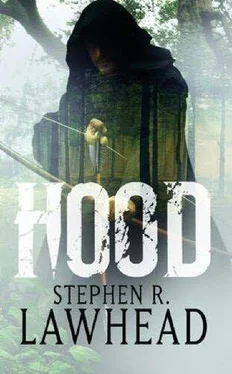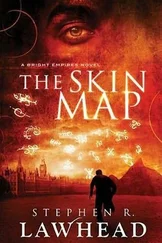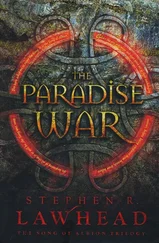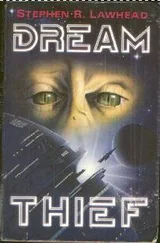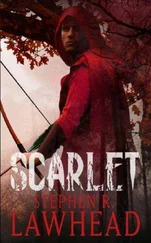Stephen Lawhead - Hood
Здесь есть возможность читать онлайн «Stephen Lawhead - Hood» весь текст электронной книги совершенно бесплатно (целиком полную версию без сокращений). В некоторых случаях можно слушать аудио, скачать через торрент в формате fb2 и присутствует краткое содержание. Жанр: Фэнтези, на английском языке. Описание произведения, (предисловие) а так же отзывы посетителей доступны на портале библиотеки ЛибКат.
- Название:Hood
- Автор:
- Жанр:
- Год:неизвестен
- ISBN:нет данных
- Рейтинг книги:4 / 5. Голосов: 1
-
Избранное:Добавить в избранное
- Отзывы:
-
Ваша оценка:
- 80
- 1
- 2
- 3
- 4
- 5
Hood: краткое содержание, описание и аннотация
Предлагаем к чтению аннотацию, описание, краткое содержание или предисловие (зависит от того, что написал сам автор книги «Hood»). Если вы не нашли необходимую информацию о книге — напишите в комментариях, мы постараемся отыскать её.
Hood — читать онлайн бесплатно полную книгу (весь текст) целиком
Ниже представлен текст книги, разбитый по страницам. Система сохранения места последней прочитанной страницы, позволяет с удобством читать онлайн бесплатно книгу «Hood», без необходимости каждый раз заново искать на чём Вы остановились. Поставьте закладку, и сможете в любой момент перейти на страницу, на которой закончили чтение.
Интервал:
Закладка:
The first time he saw the fields of light, the sight made his heart ache with yearning; he wanted nothing more than to go there, to explore that wondrous place, but something prevented him. Once, in his dream, he had made a determined rush toward the glorious fields, and it appeared he would at last succeed in reaching them. But the old woman suddenly arose before him-it was Angharad; he knew her by the quick glance of her dark eye-except that she was no longer the hideous hag who dwelt in the darksome hole. Gone were her bent back and filthy tangles of stringy hair; gone her withered limbs, gone her coarse-woven, shapeless dress.
The woman before him was beauty made flesh. Her tresses were long and golden hued, her skin flawless, soft, and supple; her gown was woven of glistening white samite and trimmed in ermine; the slippers on her feet were scarlet silk, beaded with tiny pearls. She gazed upon him with large, dark eyes that held a look of mild disapproval. He moved to step past her, but she simply raised her hand.
"Where do you go, mo croi?" she asked, her voice falling like gentle laughter on his ear.
He opened his mouth to frame a reply but could make no sound.
"Come," she said, smiling, "return with me now. It is not yet time for you to leave."
Reaching out, she touched him lightly on the arm, turning him to lead him away. He resisted, still staring at the wonderful fields beyond.
"Dearest heart," she said, pressing luscious lips to his ear, "yon meadow will remain, but you cannot. Come, return you must. We have work to do."
So she led him back from the edge of the field, back to the warm darkness and the slow plip, plip, plip of the falling rain. Sometime later-he could not say how long-Bran heard singing. It was the voice from his dream, and this time he opened his eyes to dim shadows moving gently on the rock walls of his primitive chamber.
Slowly, he turned his head toward the sound, and there she was. Although it was dark as a dovecote inside the cave, he could see her lumpen, ungainly form as she stood silhouetted by the fitful, flickering flames. She was as hideous as the hag of his recent nightmares, but as he knew now, she was no dream. She, like the hole in the ground where he lay, was only too real.
"Who are you?" asked Bran. His head throbbed with the effort of forming the words, and his voice cracked, barely a whisper. The old woman did not turn or look around but continued stirring the foulsmelling brew.
It was some time before Bran could work up the strength to ask again, with slightly more breath, "Woman, who are you?"
At this, the crone dropped her stirring stick and turned her wrinkled face to peer at him over a hunched shoulder, regarding him with a sharp, black, birdlike eye. Her manner put Bran in mind of a crow examining a possible meal or a bright bauble to steal away to a treetop nest.
"Can you speak?" asked Bran. Each word sent a peal of agony crashing through his head, and he winced. The side of his face felt as stiff and unyielding as a plank of oak.
"Aye, speak and sing," she replied, and her voice was far less unpleasant than her appearance suggested. "The question is, methinks, can thee?"
Bran opened his mouth, but a reply seemed too much effort. He simply shook his head-and instantly wished he had not moved at all, for even this slight motion sent towering waves of pain and nausea surging through his gut. He closed his eyes and waited for the unpleasantness to pass and the world to right itself once more.
"I thought not," the old woman told him. "Thou best not speak until I bid thee."
She turned from him then, and he watched her as she rose slowly and, bending from her wide hips, removed the pot from the flames and set it on a nearby rock to cool. She then came to his bed, where she sat for some time, gazing at him with that direct, unsettling glance. At length, she said, "Thou art hungry. Some broth have I made thee."
Bran, unable to make a coherent reply, merely blinked his eyes in silent assent. She busied herself by the fire, returning a short time later with a wooden bowl. Taking up a spoon made from a stag's horn, she dipped it into the bowl and brought it to Bran's mouth, parting his lips with a gentle yet insistent pressure.
Barely able to open his mouth, he allowed some of the lukewarm liquid to slide over his teeth and down his throat. It had a dusky, herbrich flavour that reminded him of a greenwood glen in deep autumn.
She lifted the spoon once more, and he sucked down the broth. "There, and may it well become you," she said soothingly. "Thou mayest yet make good your return to Tir na' Nog."
An inexplicable sense of pride and accomplishment flushed his cheeks, and he suddenly found himself eager to please her with this trifling display of infant skill. The broth, although thin and clear, was strangely filling, and Bran found that after only a few more sips from the spoon, he could hold no more. The food settled his stomach, and exhausted with the small effort expended, he closed his eyes and slept.
When he woke again, it was brighter in the cave, and he was hungry again. As before, the old woman was there to serve him some of the herbal broth. He ate gratefully, but without trying to speak, and then slept after his meal.
Life proceeded like this for many days: he would wake to find his guardian beside him, ready to feed him his broth, whereupon, after only a few sips from the stag horn spoon, he would be overcome by the urge to sleep. Upon waking, he would find himself better refreshed than before, and what is more, Bran not only found that he was eating more each time, but also suspected that the intervals between sleeping and eating were shorter.
The comforting routine was interrupted one day when Bran awoke to find himself alone in the cave. He moved his head to look around, but the hag was nowhere to be seen. The pit-pat drip of water that had accompanied his waking moments for the last many days was gone. Alone and unobserved, he decided to stand up.
Slowly, cautiously, he levered himself onto the elbow of his good arm. His shoulders were stiff, and his chest ached; even the tiniest movement set off a crippling surge of agony that left him panting. At each attack he would pause, eyes squeezed shut, clutching his chest, until the waves of pain receded and he could see straight again.
On the ground near his bed was a shallow iron basin full of water; guarding against any sudden moves, he stretched out his hand and was able to hook two fingers over the rim and pull the heavy vessel loser. When the water stopped sloshing around the basin, he leaned over it and looked in. The face staring back at him was woefully misshapen; the right side was puffy and discoloured, and a jagged black line ran from the lower lip to the earlobe. The flesh along this lightning-strike line was pinched and puckered beneath a rough beard, which had been unevenly shaved to keep the hair away from the wound.
Angry at what he saw reflected in the water, he gave the basin a shove and instantly regretted it. The violent movement caused another upwelling of pain, greater than any before. He could not bear it and fell back, tears streaming down the sides of his face. He moaned, and that started him coughing, which opened the wound in his chest. The next thing he knew, he was coughing up blood.
The stuff came bubbling up his throat, thick and sweet, and spilled over his chin. He gagged and hacked, spitting blood in a fine red mist over himself. Each cough brought forth another, and he could not catch his breath. Just when he thought he would choke to death on his own blood, the old woman appeared beside him.
"What hast thou done?" she asked, kneeling beside him.
Unable to reply, he wheezed and spluttered, blood welling up over his teeth. With a quick motion, Angharad tore aside the sheepskin covering and placed a gentle hand on his chest. "Peace!" she whispered, like a mother to a distraught and unquiet child.
Читать дальшеИнтервал:
Закладка:
Похожие книги на «Hood»
Представляем Вашему вниманию похожие книги на «Hood» списком для выбора. Мы отобрали схожую по названию и смыслу литературу в надежде предоставить читателям больше вариантов отыскать новые, интересные, ещё непрочитанные произведения.
Обсуждение, отзывы о книге «Hood» и просто собственные мнения читателей. Оставьте ваши комментарии, напишите, что Вы думаете о произведении, его смысле или главных героях. Укажите что конкретно понравилось, а что нет, и почему Вы так считаете.
